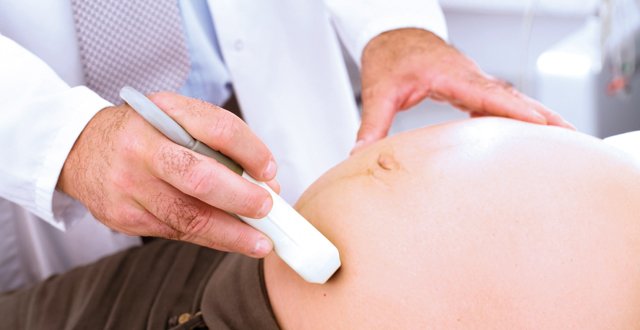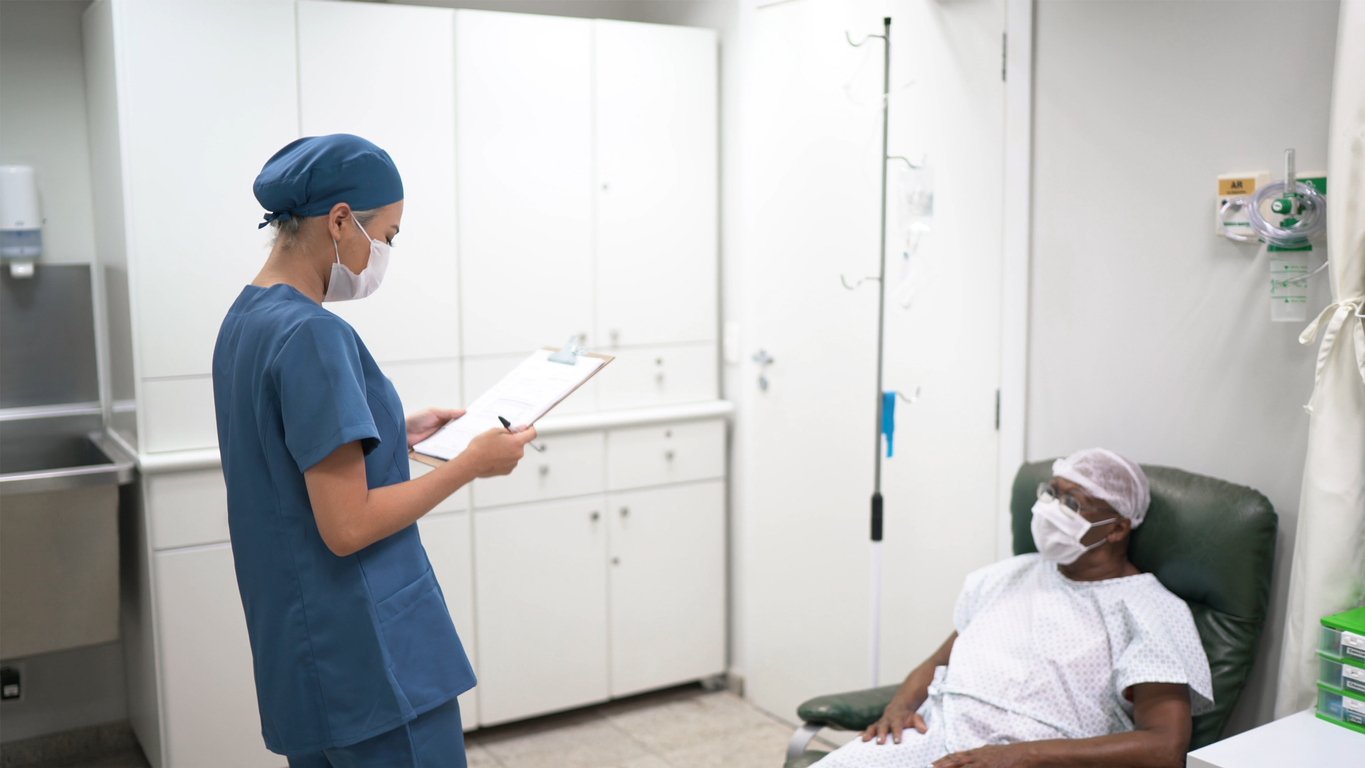The fourth Irish Congress of Obstetrics, Gynaecology and Perinatal Medicine took place in the Kilkenny Convention Centre at the Lyrath Estate Hotel on 31 November and 1 December. The biennial meeting brings together experts in the overlapping fields of women’s health, pregnancy and neonatology, with contributions from the clinical societies that make up the specialities.
<h3><strong>Abortion </strong></h3>
To practice obstetrics in Ireland today is to work in a field undergoing rapid changes, shaped by changing pressures and expectations in society as a whole. The current abortion debate and potential for significant change in Ireland, should the Eighth Amendment be repealed in this year’s referendum, was reflected in the first session of the conference. Prof Leslie Regan, President of the Royal College of Obstetricians and Gynaecologists (RCOG) in the UK, has been an advocate for women’s healthcare and better public understanding of obstetrics and gynaecology for over 30 years. She was elected as President on a promise of vision and advocacy for reproductive rights — to the disdain of some elements of the British press. Having been criticised on the front page of <em>The Daily Mail </em>twice in eight days, she remarked that she “must be doing something right”. Prof Regan spoke of the current British debate on decriminalisation of abortion and the push back against the 1967 Abortion Act, which stands in contrast to the Irish constitutional ban on abortion in all circumstances, except threat to the mother’s life. Prof Regan discussed the need for timely access to reproductive healthcare and suggested that the reason that women sometimes present late for termination of pregnancy is because they have encountered a range of barriers outside of their control.
Prof Sir Sabaratnam Arulkumaran, Head of Obstetrics and Gynaecology at St George’s, University of London, and former President of the RCOG, International Federation of Obstetrics and Gynaecology, and the British Medical Association, is perhaps best known in Ireland as the author of the Savita Halappanavar report published in 2013.
Prof Arulkumaran spoke on the safety of abortion. The mortality rate of a first trimester surgical abortion is 100 times lower than having a baby at term. Ireland, with its low maternal mortality rate, is one of the safest countries in the world to have a baby. However, Prof Arulkumaran speculated that if abortion in the UK was not so readily available to Irish women, this mortality rate could potentially be higher: “If one does not support legal abortion, then in effect one supports illegal abortion. It’s time for Ireland to join the rest of the world in human rights,” he said.
Dr Catriona Henchion of the Irish Family Planning Association (IFPA) called for free contraception to prevent unplanned pregnancies, which account for an estimated 40 per cent of pregnancies in Ireland. The lack of sex education in schools, barriers to obtaining contraception, and the use of alcohol and drugs all play a role in unplanned pregnancies. There are approximately 25 abortions per year in Ireland under the Protection of Life in Pregnancy Act, however Dr Henchion says the system is unwieldy and causes delays for women. Understandably, many women who have the means to travel to the UK will preferentially take that option, even if they qualify under the Irish Act, as obtaining an abortion in the UK does not require an overly-onerous process for the woman. This makes abortion a class issue, as women from lower socioeconomic groups are often unable to travel, she maintained. Research suggests that thousands of women are ordering abortion pills online, meaning that for illegal abortion, “the genie is well out of the bottle”.
The way women have abortions is also affected by the Irish constitutional ban. According to UK statistics, Irish women undergoing termination in the UK are more likely to have a surgical procedure rather than a medical abortion with tablets, as a surgical procedure is a day case. This is despite the fact that a medical abortion with tablets is safer than a surgical abortion. Dr Henchion said that women face barriers to travel, such as money, visa status, language difficulties and the need for secrecy. The practical side of planning an abortion means that a woman has to think of things like childcare or carers instead of her own situation. The stigma encountered by these women persists into the post-treatment phase, with many women afraid to seek post-abortion care with their doctor at home in Ireland.
<h3><strong>Panel discussion </strong></h3>
The first three speakers were followed by a panel discussion and audience questions about infrastructural and workforce issues at the packed first session.
The five participant societies of the Congress — Continence Foundation Ireland, the Irish Gynaecological Endoscopy Society, Irish Fertility Society, Irish Society of Gynaecological Oncology, and Irish Perinatal Society, along with the Institute of Obstetricians and Gynaecologists and the Junior Obstetrics and Gynaecology Society (JOGS), each had break-out sessions over the two days.
Prof Richard Anderson of the University of Edinburgh, Dr Lucy- Ann Behan, Consultant Endocrinologist at Tallaght Hospital, and Dr Stephen Dobbs, Consultant Gynaecology Oncologist in Belfast, discussed fertility preservation in patients undergoing treatment for cancer, something which affects one-in-49 women aged under 40 years old. These include medical treatments to protect the ovaries and fertility-preserving treatments in the setting of cervical cancer. Dr Yvonne O’Brien presented qualitative research on attitudes towards fertility preservation in transgender patients attending Prof Donal O’Shea’s clinic in Loughlinstown Hospital, winning the Irish Fertility Society’s medal for Best Oral Presentation.
<h3><strong>Gynae issues </strong></h3>
Mr Dudley Robinson of King’s Hospital London led a timely discussion on the use of mesh for repair of pelvic organ prolapse and incontinence. Recent media reports and legal cases have cast a cloud over the use of mesh, but evidence suggests there is still a strong case for its use, particularly in urinary incontinence. Following on from this, Prof Annette Kuhn of Universitätsklinik für Frauenheilkunde, Bern, Switzerland, discussed what to do if the bladder hurts in a wide-ranging talk on the management of bladder pain.
Day one of the Congress was closed by Mr James English, Consultant Gynaecologist at Brighton and Sussex University Hospitals, UK, discussing the management of deep endometriosis and Prof Linda Cardozo of King’s College Hospital, London, speaking on the rise of cosmetic gynaecology internationally. “In a society that has increased access to female body images, it seems women’s perception of what is ‘normal’ and desirable is becoming skewed,” said Prof Cardozo. Any woman seeking cosmetic genital surgery should be referred for counselling in the first instance as there may be body image problems at play, rather than a genuine issue with genital appearance.
Day two of the Congress began with the JOGS trainee research session of 24 oral presentations competing for prizes, including Best Case Report and the Clinch Medal for Best Oral Presentation by an SHO. The latter was won by Academic Intern Dr Adrianne Wyse for her research with Dr Paul Byrne in the Rotunda Hospital, Dublin, on HPV testing in women after treatment of cervical intraepithelial neoplasia (CIN). Prof Mary Horgan, President of the RCPI, spoke on the regulatory changes happening in the College since her election, with a focus on a renewed relationship with the Institute of Obstetricians and Gynaecologists through better representation in the RCPI.
<h3><strong>Neonatology </strong></h3>
Dr Namasivayam Ambalavanan, a neonatologist from Birmingham, Alabama, US — who is affiliated with multiple hospitals in the area, including Children’s Hospital of Alabama at UAB — spoke on the top advances in neonatology that have improved outcomes for babies, including the use of corticosteroids for foetal lung maturation, genomic studies, therapeutic cooling to prevent brain injury and advances in surgery for neonates. He also discussed the top disappointments of recent years, including therapies which promised better outcomes for neonates but did not deliver, such as inhaled steroids or nitric oxide for prevention of bronchopulmonary dysplasia in preterm infants and electronic healthcare records, which have been touted as a panacea for all the ills of modern healthcare.
A final keynote address by Prof John Lantos of Children’s Mercy Hospital Bioethics Centre in Kansas City, US, debated ‘Should we resuscitate babies at 22 weeks?’ and was followed by an audience discussion on the limits of viability and the ethics of resuscitation of peri-viable babies.
The Congress closed with the Annual Hospital Reports Meeting, where the Masters of the three Dublin maternity hospitals, along with the Clinical Directors of the next three largest maternity units in Ireland — South Southwest, University of Limerick and Saolta Hospital Groups — presented their figures for 2016. These presentations focused on survival and outcomes of very low-birthweight infants and was chaired by Prof Neil Marlow of University College London and current Chair of the NHS England Neonatal Critical Care Clinical Reference Group. Dr Rhona Mahony of the National Maternity Hospital discussed the lack of anomaly scans for many women in Ireland and said that Holles Street gave over 1,000 foetal medicine opinions in 2016 to women from all over Ireland. She also criticised the medical negligence system, which sees more money being paid out annually in claims than the total amount given to fund maternity services in Ireland.
The Congress closed with prize-giving for best presentations and posters and a well-deserved thanks to the organising committee, headed by Dr Aoife Mullally, Consultant Obstetrician at the Coombe and Midlands Regional Hospital, Portlaoise.













Leave a Reply
You must be logged in to post a comment.